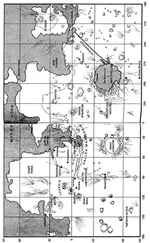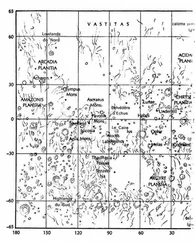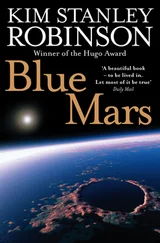Kim Robinson - Blue Mars
Здесь есть возможность читать онлайн «Kim Robinson - Blue Mars» — ознакомительный отрывок электронной книги совершенно бесплатно, а после прочтения отрывка купить полную версию. В некоторых случаях можно слушать аудио, скачать через торрент в формате fb2 и присутствует краткое содержание. Год выпуска: 1996, ISBN: 1996, Издательство: Spectra/Bantam Dell/Random House, Жанр: Космическая фантастика, на английском языке. Описание произведения, (предисловие) а так же отзывы посетителей доступны на портале библиотеки ЛибКат.
- Название:Blue Mars
- Автор:
- Издательство:Spectra/Bantam Dell/Random House
- Жанр:
- Год:1996
- ISBN:0-553-10144-7
- Рейтинг книги:3 / 5. Голосов: 1
-
Избранное:Добавить в избранное
- Отзывы:
-
Ваша оценка:
- 60
- 1
- 2
- 3
- 4
- 5
Blue Mars: краткое содержание, описание и аннотация
Предлагаем к чтению аннотацию, описание, краткое содержание или предисловие (зависит от того, что написал сам автор книги «Blue Mars»). Если вы не нашли необходимую информацию о книге — напишите в комментариях, мы постараемся отыскать её.
Green Mars
The Martian Chronicles
Dune
Piblishers Weekly st
Blue Mars — читать онлайн ознакомительный отрывок
Ниже представлен текст книги, разбитый по страницам. Система сохранения места последней прочитанной страницы, позволяет с удобством читать онлайн бесплатно книгу «Blue Mars», без необходимости каждый раз заново искать на чём Вы остановились. Поставьте закладку, и сможете в любой момент перейти на страницу, на которой закончили чтение.
Интервал:
Закладка:
“I’m looking for Ann Clayborne,” Sax said to the drivers, who were rapt with the view. “Do you know where I could find her?”
“You don’t know where she is?” one asked.
“I’ve heard she’s climbing in the Olympus caldera.”
“Does she know you’re looking for her?”
“No. She’s not answering her calls.”
“Does she know you?”
“Oh yes. We’re old — friends.”
“And who are you?”
“Sax Russell.”
They stared at him. One said, “Old friends, eh?”
Her companion elbowed her.
They called the spot they were at Three Walls, sensibly enough. Directly under their car, on a little slump terrace, there was an elevator station. Sax peered at it through binoculars: outer-lock doors, reinforced roofing — it could have been a structure from the early years. The elevator was the only way down into this part of the caldera, if you did not care to rappel.
“Ann resupplies at Marion Station,” the elbower finally said, shocking her codriver. “See it, there? That square dot, where the lava channels from the main floor cut down into South Circle.”
This was on the opposite rim of the southernmost circle, which Sax’s map named “6.” Sax had trouble making out any square dot, even with the binocular’s magnification. But then he saw it — a tiny block just a bit too regular to be natural, although it had been painted the rusty gray of the local basalt. “I see it. How do I get there?”
“Take the elevator down, then walk on over.”
So he showed the elevator attendants the pass the el-bower had given him, and took the long elevator ride down the wall of South Circle. The elevator ran on a track affixed to the cliffside, and it had windows; it was like dropping in a helicopter, or coming down the last bit of the space elevator over Sheffield. By the time he got down to the caldera floor it was late afternoon; he checked into the spartan lodge at the bottom and ate a big leisurely dinner, thinking from time to time what he might say to Ann. It came to him, slowly: a coherent and it seemed convincing self-explication, or confession, or cri de coeur, piece by piece. Then to his great chagrin he blanked the whole thing. And there he was on the floor of a volcanic caldera, the blinkered circle of sky dark and starry above. On Olympus. Searching for Ann Clayborne, with nothing to say to her. Very chagrined.
The next morning after breakfast, he pushed his way into a walker. Although the materials were improved, the elastic fabric necessarily clasped the limbs and torso just as tightly as their old suits had. Strange how the kinetics of it evoked trains of thought, flashes of memory: the look of Underbill as they were building the foursquare dome; even a kind of somatic epiphany, which seemed to be a recollection of his very first walk out of the landing craft, with the surprise of the close horizons and the textured pink of the sky. Context and memory, again.
He walked out across the floor of South Circle. This morning the sky was a dark indigo very near black — marine blue, the chart said, an odd choice of name considering how dark it was. Many stars were visible. The horizon was a round cliff, rising on all sides: the southern semicircle three kilometers tall, the northeast quadrant two kilometers, the northwest quadrant one kilometer only, and shattered. Astonishing sight, actually — the roundness of it. Thermodynamics of cooling rock in magma chambers, magma throats. Out in the middle the encircling walls were a dizzying sight. The walls looked much the same height in all directions, a textbook example of foreshortening’s ability to telescope the perception of vertical distances.
He tromped on at a steady pace. The caldera floor was fairly smooth, pocked by occasional lava bombs and late meteor hits, and curving shallow grabens. Some of these had to be circumvented, a beautifully apt word in this case, as they were circumvents, he was circumventing. But for the most part he could tramp directly toward the broken spill of cliff in the northwest quadrant of the caldera. ‘
It took six hours of steady walking to cross the floor of South Circle, which was less than ten percent of the caldera complex’s total area — all the rest of which was invisible to him for the entire hike. No sign of life, nor of any disturbance to the caldera floor or walls; the atmosphere was visibly thin, everything equally sharp to the eye, right around the primal ten millibars, he judged. The untouched nature of things made him feel uncertain about even his boot-prints, and he tried to step on hard rock, and avoid dust patches. It was strangely satisfying to see the primal landscape — quite reddish — though the color was mostly an overlay on dark basalt. His color chart was not good at odd mixes.
Sax had never descended into one of the big calderas before. And even many years spent inside impact craters did not prepare one, he found — for the depth of the chambers, the steepness of the walls, the flatness of the floor. The sheer size of things.
Midafternoon he approached the foot of the northwest arc of the wall. The meeting of wall and floor came up over his horizon, and to his slight relief, the block shelter appeared directly before him; his APS setting had been quite accurate. Not a complicated bit of navigation, but in such an exposed place it was pleasant to be precisely on line. Ever since his experience in the storm so long ago, he had been a bit wary about getting lost. Although there would be no storms up here.
As he approached the hut’s lock doors, a group of people appeared from out of the bottom of a stupendously huge steep gully in the vast broken cliff face, debouching onto the crater floor about a kilometer to the west of the refuge. Four figures, carrying big packs on their backs. Sax stopped, the sound of his breath loud in his helmet: he recognized the last figure immediately. Ann was coming in to resupply. Now he was going to have to think of something to say. And then remember it too.
Inside the hut Sax undipped his helmet and took it off, feeling a familiar but most unwelcome tension in his stomach as he did. Every meeting with Ann it got worse. He turned around and waited. Finally Ann came in, and took off her helmet, and saw him. She started as if she were seeing a ghost. “Sax?” she cried.
He nodded. He remembered when they had last met; long ago, on Da Vinci Island; it felt like a previous life. He had lost his tongue.
Ann shook her head, smiled to herself. She crossed the room with an expression he couldn’t read, and held his arms in her two hands, and leaned forward and kissed his cheek gently. When she pulled back, one of her hands continued to clutch his left arm, sliding down to the wrist. She was staring right into him, and her grip was like metal. Sax was speechless again, although he very much wanted to speak. But there was nothing to say, or too much, he couldn’t even tell which it was; his tongue was again paralyzed. That hand on his wrist; it was more incapacitating than any glare or cutting remark had ever been.
A wave seemed to pass through her, and she became somewhat more the Ann he knew, looking at him suspiciously, then with alarm. “Everyone’s okay?”
“Yes yes,” Sax said. “I mean — you heard about Michel?”
“Yes.” Her mouth tightened, for a second she became the black Ann of his dreams. Then another wave passed through her, and she was this new stranger, still clutching his wrist as if trying to snip his hand off. “But now you’re just here to see me.”
“Yes. I wanted to” — he searched wildly for a finish to the sentence — ”… to talk! Yes — to, to, to, to, to ask you some questions. I’m having some trouble with my memory. I wondered if I, if we could travel up here, and talk. Hike” — he gulped — “or climb. You could show me some of the caldera?”
Читать дальшеИнтервал:
Закладка:
Похожие книги на «Blue Mars»
Представляем Вашему вниманию похожие книги на «Blue Mars» списком для выбора. Мы отобрали схожую по названию и смыслу литературу в надежде предоставить читателям больше вариантов отыскать новые, интересные, ещё непрочитанные произведения.
Обсуждение, отзывы о книге «Blue Mars» и просто собственные мнения читателей. Оставьте ваши комментарии, напишите, что Вы думаете о произведении, его смысле или главных героях. Укажите что конкретно понравилось, а что нет, и почему Вы так считаете.












